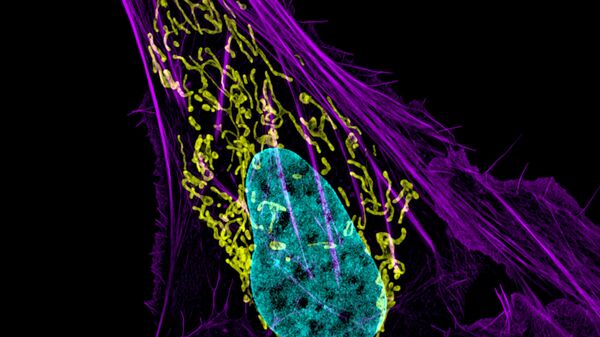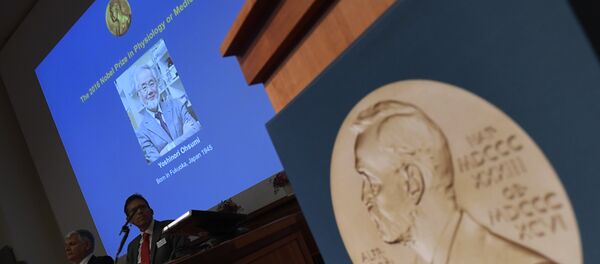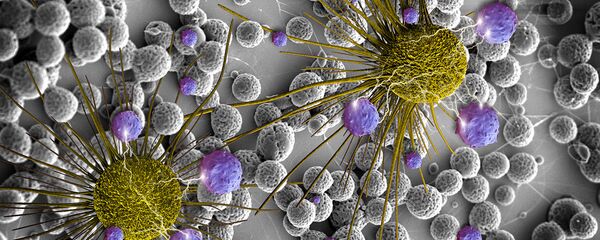A study published October 19 in Science Translational Medicine details how scientists were able to use nanoparticles to target and destroy the DNA structures that cancers use to metastasize or spread throughout the body. Using nanoparticles this way, scientists from Stony Brook University, the Cold Spring Harbor Laboratory and several other organizations were able to halt the breast cancers of three out of nine mice used in their study, while cancer continued to spread in all 10 mice of a control group.
The study focused on preventing the cancer from metastasizing by destroying the cells it hijacks to take over the body.
White blood cells are part of the human body’s internal defense system, and neutrophils are a particular type that usually consumes foreign bacteria. They form something called Neutrophil extracellular traps (NETs) as part of their defenses.
"What happens is the enzymes that normally work inside neutrophils to digest bacteria are put on DNA, and the DNA is used as a scaffold to keep these enzymes in check so they don't diffuse," Mikala Egeblad, a cancer researcher at Cold Spring Harbor Laboratory and co-author of the paper, told Motherboard. "At the same time, the DNA is pretty sticky, so it physically traps the bacteria and keeps them next to the digestive enzymes."
Cancer cells use these defensive structures to proliferate – they squeeze through the tiny holes the NETs create in tissue. Cancer can metastasize in other ways, but as Motherboard reports, the disease likes to spread this way so much that it emits chemicals that cause neutrophils to create NETs.
The team stopped cancer from using this trick by sending nanoparticles coated with an enzyme that breaks down DNA NETs, and in doing so stopped or reduced the metastases in some of their mice.
"It's possible we didn’t get a high enough dose of the nanoparticles in all of the mice, because it limited metastasis even in the ones that still got metastasis – so it wasn't as if there was no effect," Egeblad said, according to Motherboard.
A report by the Scientist noted that neutrophils have received less attention in terms of cancer research than other immune cells like macrophages or T cells. They've also yielded complicated results: "There were studies where the neutrophils appeared to kill the cancer cells and others where the neutrophils were helping the cancer cells to spread," Egeblad said.
Figuring out whether neutrophils help or hinder cancer spread is important, Egeblad added. Cancer patients undergoing chemotherapy often have their immune systems seriously weakened, with many neutrophils killed, and are given drugs to boost their production. But if these cells are actually being recruited to the cancer’s cause, raising their numbers certainly won’t help patients.
Cancer biologist Ilaria Malanchi of the Francis Crick Institute in London, who wasn’t involved in the study, told the Scientist that it is exciting "that they found a strategy to target this pro-metastatic activity of neutrophils. More research is always needed to see if this will help cancer patients, but in mice it’s looking pretty good. It raises hope."
"Could it be even other types of cancer … We don't know that yet, so that’s why we are in the process of developing methods to detect these NETs in tumors and potentially even in the blood of patients – that would be a way to understand how general or how not general this is," Egeblad, told the International Business Times.
The American Cancer Society estimates that About 40,450 women in the United States will die from breast cancer and 246,660 new cases of invasive cancer will be diagnosed. About 12% of women in the United States develop breast cancer in their lifetimes.







